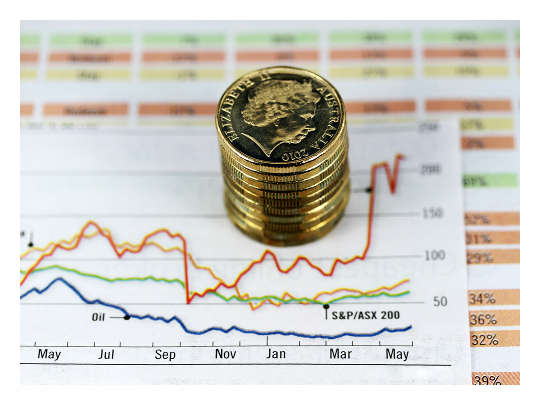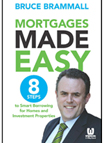Investments
Investment and Wealth Management Australia
Everyone dreams of becoming wealthy, but often people underestimate how achievable reaching their financial goals actually is. Think of achieving financial security as a recipe: Its about understanding "money's simple rules" and making them work in your life.
There are several different types of investment options that you can consider including property, shares, bonds or even simply making the most of your cash. The key to wealth management and investing is to clearly identify your financial goals, assess your current situation, and consider a broad range of investment options to determine the most effective strategy for your individual needs.
Bruce Brammall Financial's advisers can simplify the complex area of wealth management and investment options and give you a personalised financial plan to help achieve your money dreams. For more information about the different types of investment options, please see the below sections.
Investing Your Cash
 Cash is one of the most common types of investment options and the best way to invest it depends on your personal situation. As with all assets, what you should do with spare cash comes down to what other assets you have. The investment strategy will vary greatly depending on factors such as whether or not you are a home owner and how much cash you want to invest. What you do with your spare "investment" cash should form part of your overall investment strategy. If you would like to know more about how to make the most of your cash in your investment portfolio, make an appointment today to speak to one of Bruce Brammall Financial's expert advisers.
Cash is one of the most common types of investment options and the best way to invest it depends on your personal situation. As with all assets, what you should do with spare cash comes down to what other assets you have. The investment strategy will vary greatly depending on factors such as whether or not you are a home owner and how much cash you want to invest. What you do with your spare "investment" cash should form part of your overall investment strategy. If you would like to know more about how to make the most of your cash in your investment portfolio, make an appointment today to speak to one of Bruce Brammall Financial's expert advisers.
Investing In Fixed Interest and Bonds
Fixed interest and bonds are essentially loans to governments or businesses. When a government, or major company, needs money to invest or fund expenditure, it borrows from bondholders. In return, they make two promises. The first is to repay the money at a future stage. The second is to pay interest, known as coupons, at regular intervals.
Fixed interest/bonds are considered one of the next "safest" types of investment options after cash and should form at least some part of most portfolios as they generally provide a slightly higher overall return than cash. But as an asset class, they can have periods when their return is negative, generally when interest rates are rising, or in bad economic times, when companies are failing.
If you would like to know more about how bonds and fixed interest can play a part in your investment or superannuation portfolio, contact a Bruce Brammall Financial adviser today.
Investing In Shares
 Shares are generally the first thing that comes to mind when people think of "investing". Most commonly, a share is a part-ownership of a publicly listed business.
Shares are generally the first thing that comes to mind when people think of "investing". Most commonly, a share is a part-ownership of a publicly listed business.
There are thousands of businesses listed on the Australian Stock Exchange; some pay large dividends, others pay small dividends and many pay none at all. The value of any given share can change dramatically and while some shares may be increasing in value, others may be decreasing. As a result, shares are seen as the riskiest asset class to be invested in. They can provide spectacular gains and losses in short periods. Because of the extra risks, shares also tend to provide a slightly higher return than other types of investment options over the longer term.
Most investors should have some portion of their portfolio invested in shares. How you determine what shares to invest in, and how you go about investing in them are important among the types of investment options that you need to consider and should be discussed with an experienced financial advisor. Make an appointment (like to request an appointment page) to talk to the team at Bruce Brammall Financial today.
Considering Geared Investments?
 Despite the media hype of recent years, debt itself is not the devil. But like all good things, some moderation with debt is required. Too much debt, or debt used incorrectly, can cause great problems.
Despite the media hype of recent years, debt itself is not the devil. But like all good things, some moderation with debt is required. Too much debt, or debt used incorrectly, can cause great problems.
Debt, or gearing, is a common strategy when it comes to investing. Geared investing is the use of someone else's money - usually a bank's money - to increase the funds that you have available to invest. It's actually almost a necessity with some sorts of investing, such as residential property. Mixing gearing with investment is not necessarily right for everyone. If you have a long investment time-frame, have sufficient disposable income and the right risk profile, then gearing can be an extremely powerful investment tool that can help you achieve wealth far faster than you would be able to achieve by regular saving or investment programs.
Bruce Brammall Financial's advisors are experts on geared investments. From negatively and positively geared investment properties, to gearing inside SMSFs, geared shares, margin loans and using equity in your home to fund investments, we can talk you through the benefits of geared investing to determine whether adding debt to an investment strategy is a suitable strategy for you. Contact us today to request a consultation.
Indexing Investing Made Simple
 While most assets can be held directly (such as BHP Billiton shares, or an investment property) many types of investment options are held indirectly, through managed funds. Within managed funds, you essentially have the choice to use either an active fund manager or a passive fund manager.
While most assets can be held directly (such as BHP Billiton shares, or an investment property) many types of investment options are held indirectly, through managed funds. Within managed funds, you essentially have the choice to use either an active fund manager or a passive fund manager.
Active fund managers are actively managing their investments - buying and selling more prolifically - trying to beat other investors and fund managers. As a result, they tend to have higher costs of investing and charge a higher fee for managing their investments. This is known as a "management expense ratio" (MER).
Index managers don't try to beat other fund managers. They try to match the index against which they're being bench-marked, such as the ASX/300 (which is the 300 largest companies on the Australian Stock Exchange). As a result, their MER tends to be considerably smaller (often only 10-25% of the cost of an actively managed fund).
If the difference between an active manager's MER and an index fund's MER is 0.7% (it can be considerably higher than that), then that active fund needs to beat the index fund's performance by, on average, 0.7% a year in order to be ahead. The fact is that some managers will outperform and some will under-perform. If they are charging a higher MER, but they are, in fact performing worse than the average fund manager, then their fees are hard to justify.
Bruce Brammall Financial believes that using active managers to run investments is unlikely to provide better long-term investment returns. As a result, we will largely invest your money with index fund managers. This keeps the fees down and allows us to concentrate on what provides you with most of your returns - being invested in the right assets and investment and tax strategies that will assist your investment, irrespective of investment returns.
To speak to a Bruce Brammall Financial adviser about how to make sure your money is invested according to your investment risk profile, contact us to make an appointment today.
Insurance and Investing - Why It's Important
Investing often involves considerable use of your financial resources so it is important to consider what would happen if something goes wrong and you are unable to sustain your level of income. Insurance can ensure that if something unthinkable happens, your financial position and investment plans are not unduly compromised.
Proper personal risk insurance is a critical aspect of your investment plan. Many people don't consider what would happen of one partner died or was seriously injured. They often not only lose their home because they can no longer afford the mortgage, but they also lose many of their investments.
Life insurance is a critical part of every investment strategy and should not be overlooked. Adequate insurance to cover you for life, total and permanent disability, trauma and income protection can be surprising affordable and in some cases you can even use your superannuation fund to pay the premiums. For more information on how Bruce Brammall Financial advisors specialise in wealth management in Australia and can create an insurance package to meet your needs and protect your financial security, contact us today.
Upcoming Seminar
No Events Available
Mortgages Made Easy
What every property purchaser needs to know about mortgages


